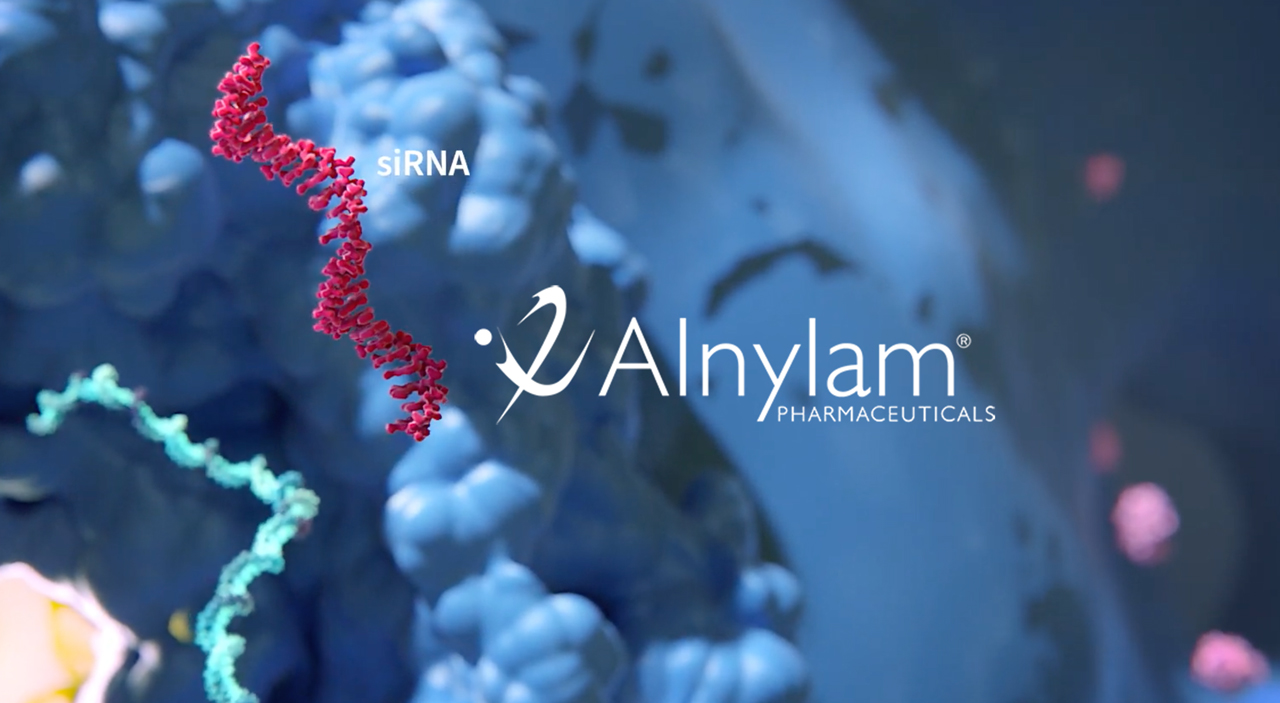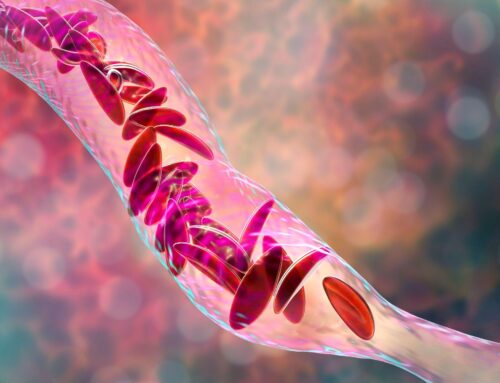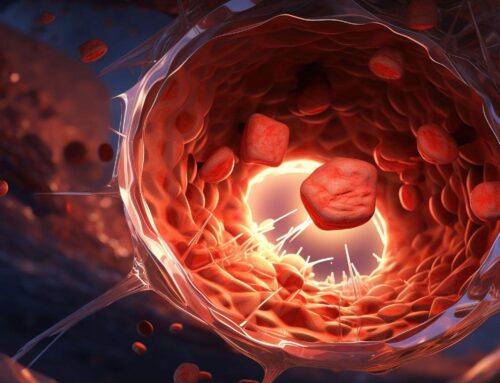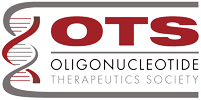Looking for something?
IKARIA – An Innovative Platform that Yields Long-Acting siRNA

In this year that marks the 20th Anniversary of the discovery of RNA interference as a gene-silencing mechanism in mammalian cells, Alnylam announced another remarkable development in siRNA therapeutics – a platform that could allow for administration of siRNA medications just once a year with highly potent knockdown of target mRNA. This platform is being tested in preclinical studies of ALN-TTRsc04, an RNAi therapeutic for the treatment of ATTR amyloidosis.
Alnylam Pharmaceuticals has remained committed to providing treatment options for patients with ATTR amyloidosis. Although they have developed a commercially available drug to treat this progressively debilitating and deadly disease, they continue innovation efforts to provide more effective and longer-lasting treatments. Thus, while a second promising treatment is in Phase 3 trials, they are also advancing a preclinical program that may provide a third, longer-lasting siRNA treatment for ATTR amyloidosis utilizing the IKARIA platform.
Patisiran (Onpattro) is Alnylam’s first drug that was developed to treat polyneuropathy in people with hereditary transthyretin-mediated amyloidosis (hATTR). It was the first medication approved to treat hATTR and the first siRNA drug to ever receive approval by the FDA. Patisiran employs a lipid nanoparticle delivery system, targets and degrades transthyretin (TTR) mRNA which inhibits TTR protein synthesis, and is administered through an IV once every three weeks.
Vutrisiran, an investigational RNAi therapeutic, is the second treatment that Alnylam has developed to treat ATTR and is currently in Phase 3 trials. It also targets transthyretin (TTR) to inhibit TTR protein synthesis, but utilizes Alnylam’s Enhanced Stabilization Chemistry (ESC)-GalNAc delivery platform. With this platform, Vutrisiran is easier for patients to receive than Patisiran because it only requires a subcutaneous injection each quarter with the potential for biannual dosing. It is being reviewed by the FDA and EMA for approval.
Alnylam has continued working to enhance its GalNAc conjugate platform to achieve even better pharmacodynamic effects. These enhancements include changing chemistry such as backbone and nucleotide chemistry which has enabled Alnylam to develop therapeutics that require much lower doses and provide far longer durability using identical sequences (1, 2, 3). Brown et al. made another significant discovery when they found that administering endolytic peptides at various time points after the initial administration of a siRNA resulted in a burst of RNAi silencing activity. Their work demonstrates that durability of GalNAc-siRNA conjugates is linked to an intracellular depot (4).
IKARIA is an innovative, extended duration platform that has recently been developed as a result of Alnylam’s discoveries through their continued efforts to create and improve RNAi therapeutic platforms. John Maraganore, the CEO and director of Alnylam who recently announced his retirement, briefly presented information about the IKARIA platform at the OTS 2021 Virtual Conference.
IKARIA confers exquisite target specificity, achieves an even longer-lasting RNAi therapeutic effect, and may work like an annual vaccine for treating disease. The potential for an annual dosing regimen is enabled by the improvement of specificity and the ability to go to higher doses.
Kevin Fitzgerald, Ph.D., Senior Vice President, Chief Scientific Officer explained the benefits concisely, “With IKARIA, we are confident we can design long-acting siRNA with all the proven pharmacological advantages and established human experience of RNAi therapeutics, including predictable dose-dependence and onset/offset kinetics, without permanent effects on the target or cell.”
ALN-TTRsc04 is Alnylam’s latest preclinical siRNA therapeutic designed to treat ATTR amyloidosis utilizing the IKARIA platform. It also targets transthyretin (TTR) mRNA to inhibit TTR protein synthesis and is administered through a subcutaneous injection. This drug provides highly potent target mRNA silencing with over 90% TTR reduction and should only require annual dosing. ALN-TTRsc04 is planned to enter clinical development around the end of 2022 with an IND application filing.
A new medication that provides deep TTR reductions while only requiring a single subcutaneous injection once a year would be an incredible boon to people who have been diagnosed with ATTR amyloidosis. Should IKARIA live up to its promise, it may be the key to providing long-lasting health for individuals who live with many different diseases. Although precise details of IKARIA have not been fully disclosed, we look forward to learning more about this incredible advancement in RNAi therapeutics in the future.
- Janas MM, Zlatev I, Liu J, Jiang Y, Barros SA, Sutherland JE, Davis WP, Liu J, Brown CR, Liu X, Schlegel MK, Blair L, Zhang X, Das B, Tran C, Aluri K, Li J, Agarwal S, Indrakanti R, Charisse K, Nair J, Matsuda S, Rajeev KG, Zimmermann T, Sepp-Lorenzino L, Xu Y, Akinc A, Fitzgerald K, Vaishnaw AK, Smith PF, Manoharan M, Jadhav V, Wu JT, Maier MA. Safety evaluation of 2′-deoxy-2′-fluoro nucleotides in GalNAc-siRNA conjugates. Nucleic Acids Res. 2019 Apr 23;47(7):3306-3320. doi: 10.1093/nar/gkz140. PMID: 30820542; PMCID: PMC6468299.
- Janas MM, Schlegel MK, Harbison CE, Yilmaz VO, Jiang Y, Parmar R, Zlatev I, Castoreno A, Xu H, Shulga-Morskaya S, Rajeev KG, Manoharan M, Keirstead ND, Maier MA, Jadhav V. Selection of GalNAc-conjugated siRNAs with limited off-target-driven rat hepatotoxicity. Nat Commun. 2018 Feb 19;9(1):723. doi: 10.1038/s41467-018-02989-4. PMID: 29459660; PMCID: PMC5818625.
- Foster DJ, Brown CR, Shaikh S, Trapp C, Schlegel MK, Qian K, Sehgal A, Rajeev KG, Jadhav V, Manoharan M, Kuchimanchi S, Maier MA, Milstein S. Advanced siRNA Designs Further Improve In Vivo Performance of GalNAc-siRNA Conjugates. Mol Ther. 2018 Mar 7;26(3):708-717. doi: 10.1016/j.ymthe.2017.12.021. Epub 2018 Jan 4. PMID: 29456020; PMCID: PMC5910670.
- Brown CR, Gupta S, Qin J, Racie T, He G, Lentini S, Malone R, Yu M, Matsuda S, Shulga-Morskaya S, Nair AV, Theile CS, Schmidt K, Shahraz A, Goel V, Parmar RG, Zlatev I, Schlegel MK, Nair JK, Jayaraman M, Manoharan M, Brown D, Maier MA, Jadhav V. Investigating the pharmacodynamic durability of GalNAc-siRNA conjugates. Nucleic Acids Res. 2020 Dec 2;48(21):11827-11844. doi: 10.1093/nar/gkaa670. PMID: 32808038; PMCID: PMC7708070.








